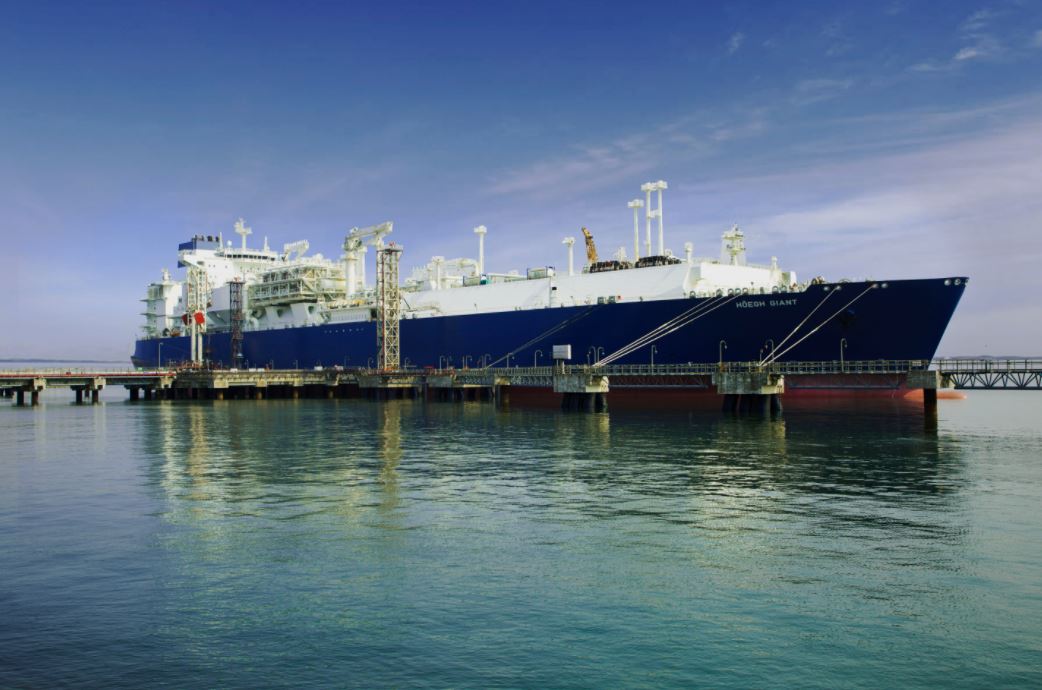Hoegh LNG’s 170,000-cbm FSRU Hoegh Giant left India following a deal with India’s H-Energy, the owner of the delayed import facility in Jaigarh.
In April, Hoegh LNG terminated the charter deal with H-Energy following “the charterer’s default of the contractual terms.”
After that, Hoegh LNG “reached an agreement with the previous charterer in July dropping all claims and counterclaims against a settlement amount to be paid by Hoegh LNG and Hoegh Giant thereafter left India,” the firm said in its second-quarter results report.
According to its AIS data, the FSRU was on Wednesday anchored in Oman’s Mina al Fahl, near Muscat. The unit arrived there earlier this month.
Hoegh LNG said it aims to employ Hoegh Giant in the LNG carrier market for a short interim period before the vessel would be allocated to one of the group’s new FSRU contracts.
German contracts
Earlier this year, the floating LNG player signed a deal with Germany’s RWE on behalf of the German Federal Ministry for Economic Affairs and Climate Action to charter two FSRUs for a period of 10 years.
Hoegh LNG said in the quarterly report it expects to complete detailed FSRU contracts by September/October, while FSRU operations would start by the end this year.
Germany is moving quickly with its plans to build infrastructure and become a major LNG importer, and has introduced the LNG acceleration law and chartered four FSRUs, including the two from Hoegh LNG and two from Dynagas.
Uniper already started building Germany’s first FSRU-based LNG facility in Wilhelmshaven and expects to commission it this winter, while the Brunsbuettel FSRU-based LNG import terminal, developed by RWE, should also go online by the end of this year.
Hoegh LNG would probably employ Esperanza and Galleon for these two contracts.
Besides the German contracts, Hoegh LNG and Australian Industrial Energy (AIE) confirmed a long-term FSRU charter deal for the latter’s Port Kembla import terminal in New South Wales.
AIE is entitled to time the start-up of the contract between 2023 and 2025.
FSRU fleet fully employed
With the latest commercial developments, Hoegh LNG said it expects its fleet of FSRUs to be fully employed and start operations on long-term FSRU contracts over the next 6-12 months, except for the potential later start of the contract in Australia.
Currently, Hoegh LNG’s main operational focus is to “prepare the FSRUs for start-up of the new contracts and ensure the projects are delivered on time to our customers,” it said.
The company’s fleet consists of ten FSRUs and two LNG carriers, including five FSRUs owned by Hoegh LNG Partners.
Hoegh is expecting to complete the purchase all publicly held common units of New York-listed Hoegh LNG Partners this year.
HMLP recently said it has established a record date of August 22 for a special meeting of its unitholders currently planned to take place on September 20.
At the special meeting, the holders of the partnership’s common units will vote on the proposed merger.
FSRU expansion, net loss
Such as in the previous quarterly report, Hoegh LNG said in the second-quarter announcement that the firm is looking to expand its fleet of FSRUs.
“Looking further ahead, the company will start considering potential growth opportunities including expansions of its FSRU fleet with newbuilds or conversion of LNG carriers to FSRUs, maintaining its position as the leading FSRU provider,” it said.
Hoegh LNG reported a net loss after taxes of $7.5 million in the second quarter.
It reported a total income of $86.9 million and an Ebitda of $46.8 million for the second quarter, compared to $91.8 million and $54.4 million for the preceding quarter.
Decrease in Ebitda mainly reflects that Hoegh Giant was idle from late April when the FSRU contract in India was terminated, it said.
H2 results to be impacted by FSRU modifications
The firm also expects that its results for the second half of 2022 would be impacted by three FSRUs planned to be out of service for modifications and preparations for new FSRU projects.
Hoegh LNG said the FSRUs would be without revenue for a period, and costs involved with the modifications may be party expensed as Opex and partly capitalized as investments depending on the nature of the costs incurred.
Furthermore, an additional FSRU would be out of service for class renewal in the third quarter, while the second half results would also be negatively impacted by the settlement agreed in July with the previous charterer of Hoegh Giant, it said.

